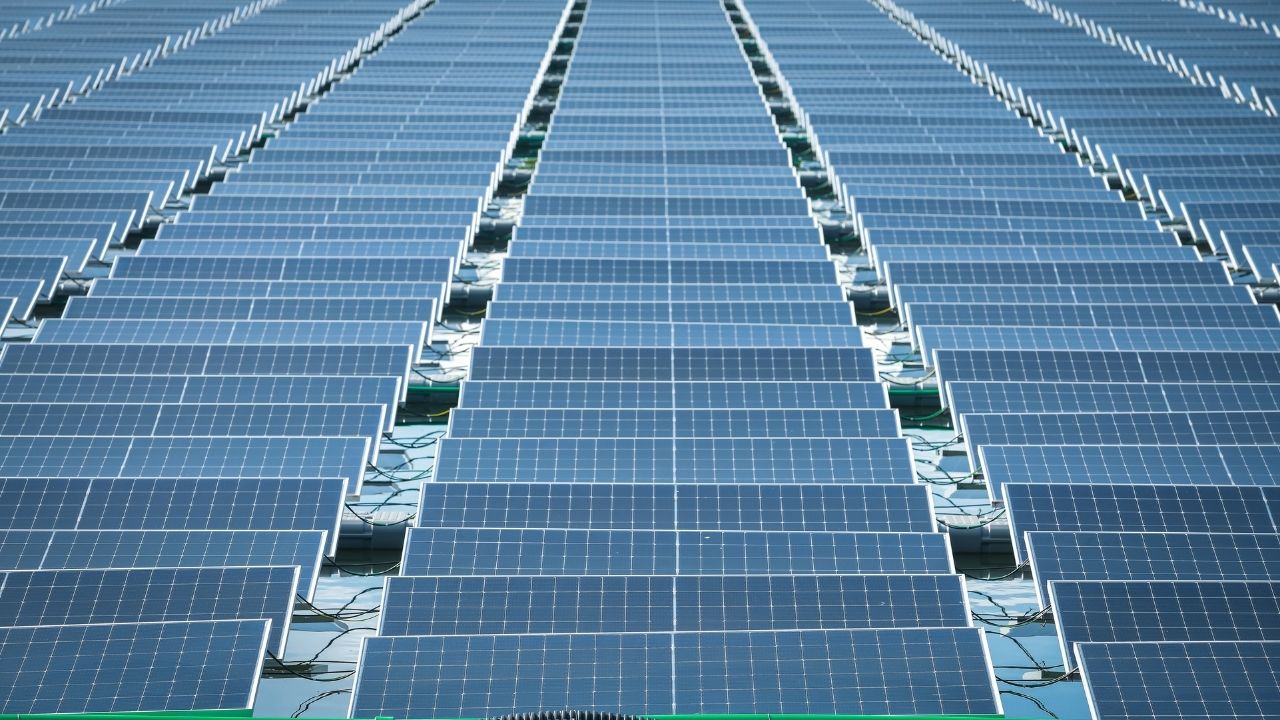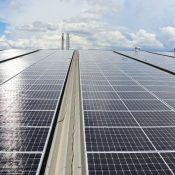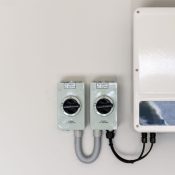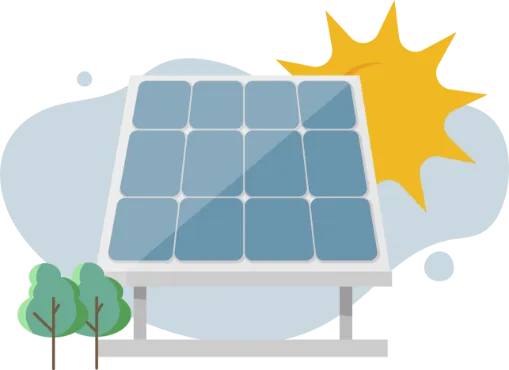Different Types of Commercial Solar Panels
Are you thinking about switching to solar energy for your business but finding the choices confusing? Solar energy is great for lowering costs and reducing your environmental impact. Yet, choosing the best commercial solar panel can be a difficult task.
In this blog post, we will explore the different types of commercial solar panels available on the market. So that you’ll have a clear understanding of which solar panel type best suits your business needs.
What Are Commercial Solar Panels?
Commercial solar panels are devices designed to capture sunlight and convert it into electrical energy to power businesses. They are typically installed on rooftops or open spaces where they can receive maximum sunlight.
Solar panels are made up of photovoltaic (PV) cells, which are responsible for converting sunlight into electricity. These PV cells are usually composed of silicon, a semiconductor material.
What Are the Different Types of Commercial Solar Panels?
When considering commercial solar panels for your business, it’s important to understand the various types available and their specific advantages and disadvantages. Here are the main types of commercial solar panels:
Monocrystalline Solar Panels
Monocrystalline solar panels are made from a single continuous crystal structure. This type of panel is known for its high efficiency and sleek appearance, as the cells are cut from a cylindrical silicon ingot.
Monocrystalline solar panels include their high efficiency, space efficiency, long lifespan, and aesthetic appeal. They are ideal for businesses with limited roof space and require fewer panels to generate the same amount of energy.
However, they are generally more expensive compared to other types and their performance can significantly drop if partially shaded. The higher initial cost can be offset by long-term energy savings and efficiency.
Polycrystalline Solar Panels
Polycrystalline solar panels are made from silicon crystals that are melted together. They have a distinctive blue colour and a less uniform appearance compared to monocrystalline panels.
These panels are cost-effective, have a good efficiency rate, and are strong and durable. They offer a balanced performance at a lower price point, making them a popular choice for many businesses.
On the downside, they are less efficient than monocrystalline panels and require more space to generate the same amount of power. This makes them more suitable for businesses with enough roof space. The lower efficiency also means that more panels might be needed to meet energy needs. However, thermodynamic solar systems harness renewable energy from the air and sunlight to efficiently heat water, providing an eco-friendly and cost-effective solution for residential and commercial properties.
Thin-Film Solar Panels
Thin-film solar panels are made by depositing one or more thin layers of photovoltaic material onto a substrate. They are lightweight and flexible, making them suitable for a variety of applications.
Thin-film solar panels are versatile, can blend smoothly with building designs, and perform better in low light conditions and high temperatures. They are particularly useful for large-scale installations where space is not a constraint.
However, they have lower efficiency rates, generally have a shorter lifespan compared to crystalline panels, and require more space due to their lower efficiency. Their flexibility allows for innovative installation options, but their lower power output can be a limitation for high-energy-demand businesses.
What Are the Benefits of Using Solar Panels in Businesses?
Businesses around the world are increasingly adopting solar energy solutions for many benefits. Here, we explore the significant advantages of using solar panels in businesses.
Cost Savings
Solar panels can substantially reduce your electricity bills by generating your own power. Over time, the initial investment in solar panels pays off through lower energy costs. Many businesses experience a significant reduction in operating expenses, enhancing their bottom line.
Environmental Impact
By using solar energy, businesses can lower their carbon footprint and contribute to environmental sustainability. Solar panels produce clean, renewable energy, reducing reliance on fossil fuels. This move towards greener practices can also enhance your brand image and appeal to environmentally conscious consumers.
Energy Independence
Solar panels provide energy independence by reducing dependency on the grid. This ensures a stable and reliable energy supply, protecting your business from power outages and fluctuations in energy prices. Businesses can achieve greater control over their energy usage and costs.
Government Incentives
Many governments offer financial incentives for businesses that invest in solar energy. These can include tax credits, rebates, and grants, making the switch to solar more affordable. Taking advantage of these incentives can significantly lower the cost of solar panel installation.
Increased Property Value
Installing solar panels can increase the value of your property. Buildings equipped with solar energy systems are seen as more desirable due to their lower operating costs and sustainable energy solutions. This can be a valuable asset if you decide to sell or lease your property in the future.
Factors to Consider When Choosing Commercial Solar Panels
Choosing the right commercial solar panels for your business involves various factors to ensure optimal performance and cost-effectiveness. Here are key considerations to guide your decision.
Efficiency
Efficiency determines how much energy a panel can produce from sunlight. High-efficiency panels, such as monocrystalline, are ideal if you have limited space. Higher efficiency translates to more power generation and better performance in smaller areas.
Cost
Budget will influence your choice of solar panels. While monocrystalline panels are more efficient, polycrystalline and thin-film panels offer cost-effective alternatives. Balancing initial investment with long-term savings is crucial for making an informed decision.
Space
The amount of available space for installation is crucial. High-efficiency panels like monocrystalline require less space, while thin-film panels can be used on unconventional surfaces. Consider the layout and available roof or ground space when selecting your panels.
Durability
Consider the lifespan and warranty of the panels. Investing in durable panels can save costs in the long run. Look for panels with a proven track record of reliability and strong manufacturer warranties.
Installation Environment
The environmental conditions of the installation site, such as temperature, shading, and angle of sunlight, can impact panel performance. Ensure the chosen panels are suitable for your specific location and conditions to maximise efficiency and longevity.
Conclusion
Using solar panels for your business offers many benefits, including cost savings, reduced environmental impact, energy independence, government incentives, and increased property value.
When choosing commercial solar panels, consider factors like efficiency, cost, available space, durability, and the installation environment to ensure optimal performance and return on investment.
Looking to make the switch to solar energy? Contact Going Solar today expert installation of commercial solar panels for your business. Our team is dedicated to helping you switch smoothly to renewable energy and achieve long-term savings. Invest in a sustainable future with Going Solar.
Planning a switch to solar energy?
Contact Going Solar now and Get Free Advice & Quote Within Minutes!
Frequently Asked Questions
Contact Going Solar Now!
Joe Brennan
Founder @ Going Solar
Joe Brennan, the founder of Going Solar, is dedicated to making solar power mainstream in Ireland and meet SEAI objectives. With a focus on affordability and sustainability, he is bringing renewable energy solutions to homes, reducing costs & environmental impact.
Recent Posts









